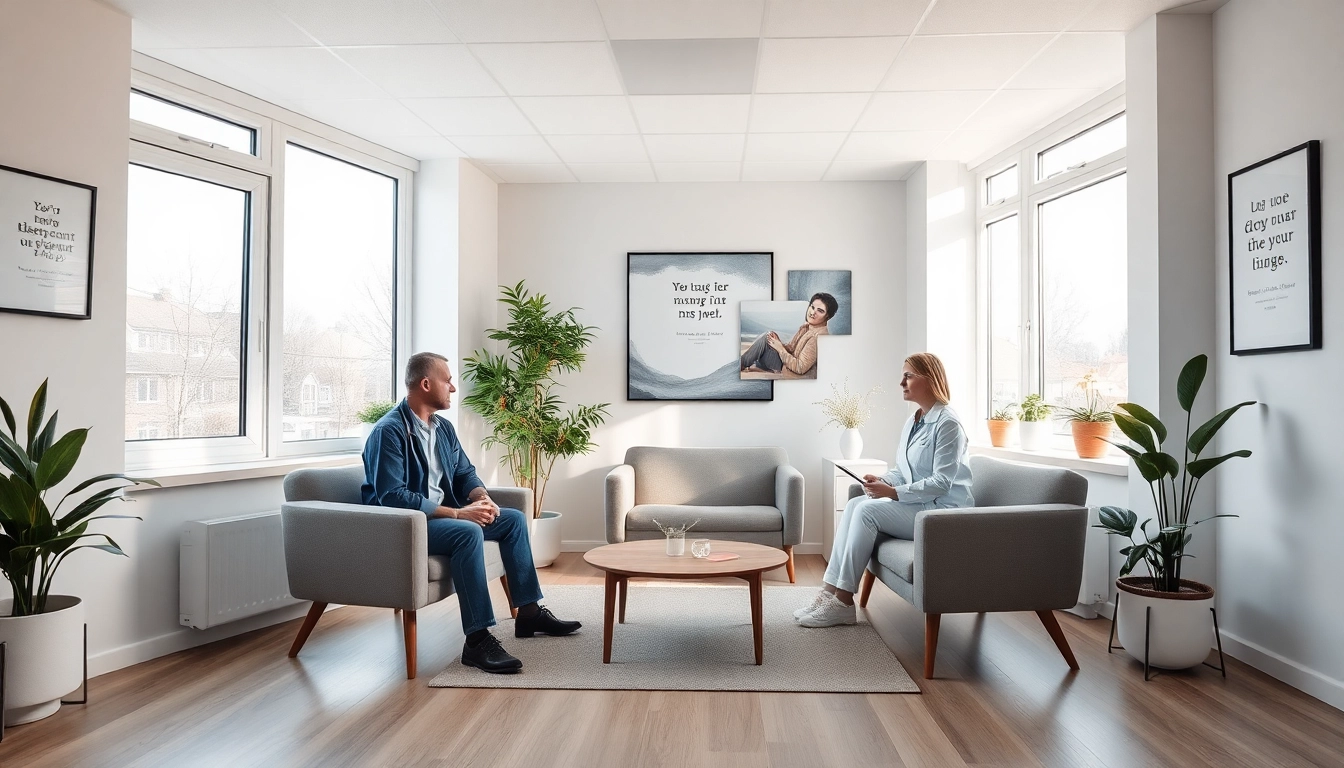
The Importance of Choosing the Right German Psychiatric Clinic
When it comes to mental health treatment, finding the right facility is paramount. With Germany being home to a plethora of psychiatric clinics that offer diverse approaches to mental wellness, the choice can be overwhelming. Choosing the right German psychiatric clinic can greatly impact the effectiveness of your treatment. This article will provide guidance on selecting a suitable clinic by focusing on key aspects such as treatment approaches, clinic credentials, and patient endorsements.
Understanding Various Treatment Approaches
German psychiatric clinics employ a variety of treatment modalities, each tailored to individual needs. These can include:
- Cognitive Behavioral Therapy (CBT): This is one of the most common forms of psychotherapy used in treating conditions such as anxiety and depression. CBT focuses on changing negative thought patterns and behaviors.
- Medication: Psychotropic medications, such as antidepressants or antipsychotics, are often used in conjunction with therapy. Counseling with a qualified psychiatrist to discuss options is essential.
- Group Therapy: Many clinics offer group sessions where patients can share their experiences and learn from one another, helping to reduce feelings of isolation.
- Mindfulness and Relaxation Techniques: Forms of therapy that incorporate mindfulness and stress-reduction techniques can aid patients in managing their symptoms.
- Holistic Approaches: Some facilities incorporate complementary therapies, such as art or music therapy, to provide a more rounded treatment experience.
Understanding these approaches is critical when selecting a clinic as they need to align with your personal preferences and the nature of your mental health challenges.
Evaluating Clinic Credentials and Staff
Accreditation and the qualifications of the staff are important factors to consider when choosing a psychiatric clinic. Here’s what to focus on:
- Licensing and Accreditation: Make sure that the clinic is accredited by relevant health authorities in Germany. Accreditation ensures that the facility meets specific safety and quality standards.
- Qualified Staff: Research the qualifications and experience of the psychiatrists, psychologists, and other healthcare providers at the clinic. Look for specialists who have training in the specific area of your concern, such as trauma or addiction.
- Patient-to-Staff Ratio: A lower patient-to-staff ratio often means more personalized care. Clinics that maintain this ratio can provide more attention and tailored treatment to each patient.
Assessing Patient Reviews and Success Rates
Reviews and testimonials from former patients can provide valuable insights into the quality of care provided by a clinic:
- Online Reviews: Websites like Google Reviews, Healthgrades, and RateMDs can give you a perspective on patient satisfaction and overall success.
- Success Rates: If available, inquire about the clinic’s success rates in treating specific mental health issues. This data can indicate the effectiveness of their treatment protocols.
- Word of Mouth: Personal recommendations can add a layer of trust, as friends or family can share their experiences and insight.
Common Mental Health Issues Addressed in German Psychiatric Clinics
German psychiatric clinics are equipped to handle a wide range of mental health issues. Here are some of the most common conditions treated:
Depression and Anxiety Disorders
Depression and anxiety are among the most prevalent mental health disorders. They can manifest in various ways, including:
- Generalized Anxiety Disorder (GAD): Characterized by persistent and excessive worry about various aspects of life.
- Major Depressive Disorder: Involves a persistent feeling of sadness and loss of interest in activities once enjoyed.
Clinics offer assessment tools, psychotherapy, and medication to help patients manage these disorders effectively. It’s essential for individuals suffering from these conditions to seek early intervention, as prompt treatment can lead to better outcomes.
Bipolar Disorder and Schizophrenia
Bipolar disorder and schizophrenia are more complex conditions requiring specialized treatment approaches. Symptoms can severely disrupt a patient’s daily life, making professional intervention necessary:
- Bipolar Disorder: This disorder involves extreme mood swings, ranging from manic episodes of unusually elevated mood to depressive lows.
- Schizophrenia: A severe mental disorder characterized by delusions, hallucinations, and impaired functioning. Clinics provide comprehensive treatment plans that often include antipsychotic medications and cognitive therapies.
Trauma and PTSD Treatment Options
Treatment for trauma and Post-Traumatic Stress Disorder (PTSD) is imperative, especially for those who have experienced covert or overt trauma. The clinics use a variety of innovative techniques:
- Eye Movement Desensitization and Reprocessing (EMDR): This therapy is specifically designed to help individuals process traumatic memories.
- Trauma-Focused Cognitive Behavioral Therapy (TF-CBT): A specifically adapted treatment suitable for children and adolescents dealing with trauma.
How to Prepare for Your First Visit to a German Psychiatric Clinic
Preparation for your first visit can significantly enhance your experience and outcomes. Here’s how to make the most of your initial consultation:
Documentation and Medical History
Having a comprehensive understanding of your medical and psychological history is crucial. Be prepared to share:
- Any previous mental health treatments you have undergone
- Current medications and dosages
- Family medical history, particularly regarding mental health issues
Setting Expectations for Initial Consultations
Be aware that your first appointment may include extensive questioning and assessment. The psychiatrist will likely ask about your symptoms, triggers, and the impact these have on your daily life. Setting realistic expectations can ease anxiety surrounding the visit.
Questions to Ask Your Psychiatrist
Preparing a list of questions can help you feel more empowered during your visit. Consider asking about:
- Treatment options and their potential side effects
- The expected duration of treatment
- Follow-up procedures and what to do in a crisis
Comparing Costs and Insurance Options for German Psychiatric Clinics
The cost of mental health care can vary significantly among psychiatric clinics in Germany. Understanding your options is essential for managing these expenses effectively.
Insurance Coverage for Psychiatric Services
In Germany, health insurance typically covers the cost of psychiatric outpatient treatment. Ensure that the clinic accepts your insurance plan and understand what services are included. There are generally two types of insurance:
- Statutory Health Insurance: Covers most basic psychiatric treatment.
- Private Health Insurance: May offer broader access to various treatments and facilities.
Understanding Out-of-Pocket Expenses
Some treatments may not be wholly covered by insurance, necessitating out-of-pocket expenses. It is vital to understand any co-pays, deductible amounts, or limitations on the number of therapy sessions covered by your plan.
Finding Affordable Care Solutions
For those without adequate coverage, seeking clinics that offer sliding scale fees can make treatment more affordable. Some facilities may also have programs specifically designed to assist those experiencing financial hardship.
Success Stories: Patient Experiences in German Psychiatric Clinics
Hearing from those who have previously sought help can inspire hope and provide valuable insights into what to expect from treatment:
Case Study 1: Overcoming Depression
A patient named Anna struggled with major depressive disorder for years. After seeking help from a reputable psychiatric clinic, she engaged in a combination of CBT and medication management. Within months, Anna reported significant improvements in her mood and functionality, leading to a full return to her daily activities.
Case Study 2: Managing Anxiety Disorders
Michael battled severe anxiety that affected his job performance. After enrolling in a clinic renowned for treating anxiety disorders, he participated in group therapy and utilized mindfulness techniques. Over time, he developed coping strategies that allowed him to manage his symptoms effectively.
Inspiring Testimonials from Former Patients
Many patients have expressed gratitude for the care they received, noting significant life improvements after treatment. Their stories highlight the benefits of seeking professional help and remind others that recovery is possible.





